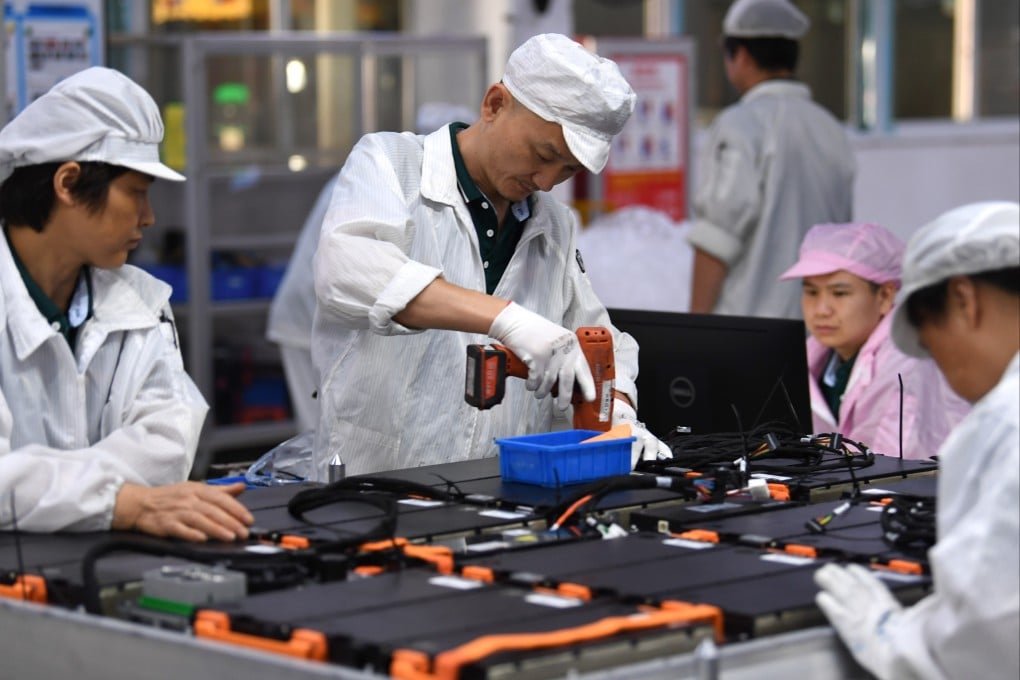BMW increases bet on China’s EV sector with fresh US$1.4bn investment to expand Shenyang battery factory: report
- The fresh funds will be used to upgrade the battery production base in Shenyang, capital of northeastern Liaoning province
- High voltage systems allow a lower current to be used when charging an EV battery, reducing overheating and allowing better power retention

BMW is looking to expand the capacity of its high-voltage battery plant in China with an additional investment of 10 billion yuan (US$1.38 billion), revving up efforts to tap the mainland’s fast-growing electric vehicle (EV) market.
The fresh funds will be used to upgrade the battery production base in Shenyang, capital of northeastern Liaoning province, according to a report by the state-owned tabloid Global Times, which cited an unidentified BMW official. The report did not state when the new phase of construction would start.
The German carmaker declined to comment on Wednesday.
“BMW’s new investment and production plans in China show that it is very bullish about consumer demand for EVs here,” said Gao Shen, an independent analyst in Shanghai. “The complete automotive supply chain in the world’s largest EV market also prompted it to move its production facilities to China.”
High voltage systems allow a lower current to be used when charging an EV battery, reducing overheating and allowing better power retention. The reported expansion of the battery factory in Shenyang comes four days after BMW said it was relocating some production of electric Mini cars from Oxford in the UK to Zhangjiagang, eastern Jiangsu province, next year.